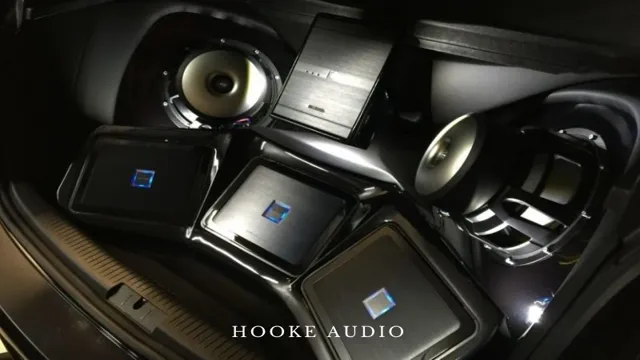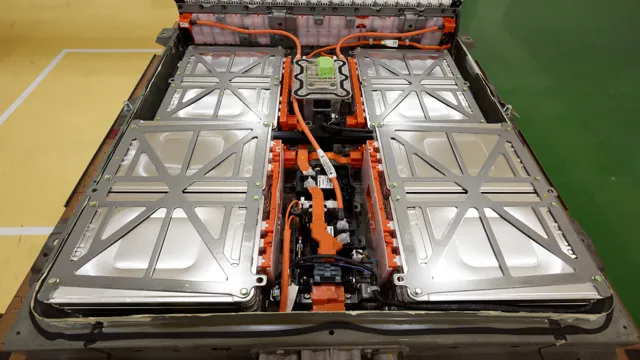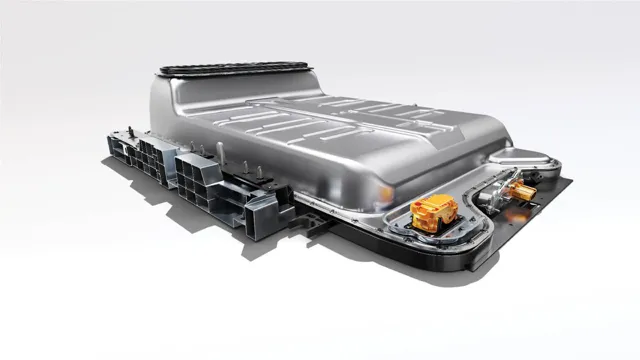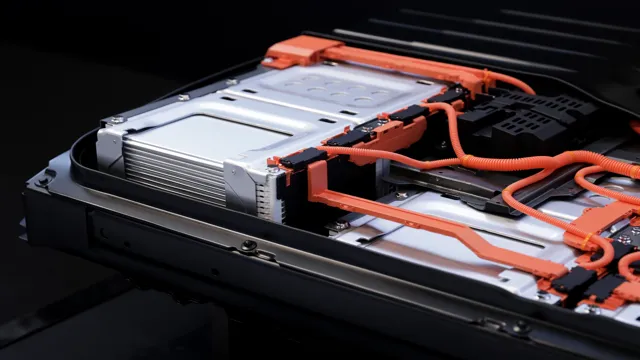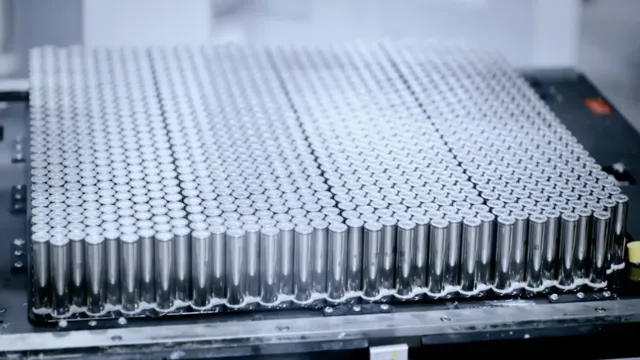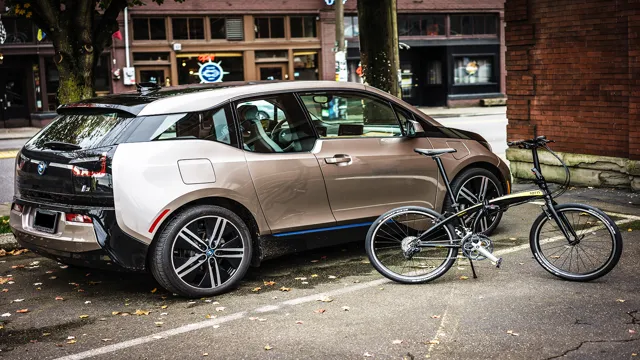Electric Cars: Are Battery Fires a Real Concern?
With the growing popularity of electric cars, people are becoming more interested in their technology, capabilities and drawbacks. Electric cars have many advantages, including being eco-friendly, energy-efficient, silent, and less maintenance required. However, there are also some concerns that arise with this new technology, one of which is the safety of electric car batteries in the event of a fire.
While electric cars have proven to be much safer than gasoline-powered vehicles, accidents involving electric cars are more complex and have their unique hazards. One of the main risks of electric vehicle batteries catching fire is the overheating of these cells, which can lead to chemical reactions that can cause the battery to ignite. With so much energy stored in these high-performance batteries, such fires can be difficult to control and can cause serious damage, which raises questions about the effectiveness of current fire safety protocols.
It is essential to understand the risks associated with electric car batteries to ensure that the technology is well-understood and adequately handled to avoid any disasters. Moreover, addressing these concerns will also increase consumer confidence in electric vehicles and promote their widespread adoption as a viable alternative to traditional gasoline-powered vehicles. In this blog, let us take a more in-depth look at the safety issues surrounding electric car batteries and fires, the causes of these fires, and what is being done to mitigate these risks.
Risk of Fire
Electric car batteries have come under scrutiny for their tendency to catch fire, but the truth is that such incidents are rare. While it’s true that the batteries used in electric vehicles carry a higher risk of fire compared to gasoline cars, manufacturers have implemented several safety features to prevent and mitigate hazards. For instance, electric cars have a protection system that cuts off the flow of electric current to prevent fires in the battery pack.
Additionally, the battery packs are encased in fire-resistant materials, and the cars are equipped with safety mechanisms that shut down the battery if it overheats or is damaged. Nonetheless, just like any other vehicle, electric cars are vulnerable to accidents, which may lead to fires. However, the risk of electric vehicle fires is much lower than other types of vehicle fires.
In conclusion, while electric vehicle batteries can catch fire, the risks are minimal due to the safety features installed in the vehicles by manufacturers.
Chemical Composition of Lithium-ion Batteries
When it comes to lithium-ion batteries, there is always a risk of fire. This is because of the chemical composition of the battery itself. Lithium-ion batteries contain flammable electrolytes, which can ignite under certain conditions.
In addition, the anode and cathode materials in lithium-ion batteries can also be flammable. When a lithium-ion battery is damaged or overheats, these flammable materials can ignite, leading to a fire. This risk is not just theoretical – there have been numerous cases of lithium-ion battery fires in recent years.
While the risk of fire can never be completely eliminated, manufacturers are constantly working to improve the safety of lithium-ion batteries. They use flame retardant materials and implement safety features like thermal runaway prevention to reduce the likelihood of a fire. Nonetheless, it’s important for users to understand the risks associated with lithium-ion batteries and take appropriate precautions to stay safe.

Examples of Electric Car Battery Fires
When it comes to electric cars, a common concern and fear is the risk of fire. While electric vehicles are generally considered safe, it is true that there have been some instances of battery fires. For instance, in 2019, a Tesla Model S caught fire in a parking lot in Hong Kong.
Another Tesla car caught fire while charging in Belgium in 2020. However, it’s important to note that these incidents are relatively rare. In fact, studies have shown that the likelihood of an electric vehicle catching fire is much lower than that of a gasoline-powered car.
Additionally, electric cars are equipped with safety features that can help prevent fires and mitigate their impact if they do occur. For example, electric car batteries are designed to shut down if they detect a problem, and they are built with fire-resistant materials. While the risk of an electric car battery fire cannot be completely eliminated, it is relatively low and can be further reduced by following appropriate safety guidelines.
Preventing Fires
Many people are concerned about the safety of electric car batteries and whether they can catch fire. The truth is, while electric car batteries have caught fire in the past, these incidents are rare and mostly preventable. Car manufacturers have implemented a number of safety precautions such as battery cell design, thermal management systems, and protective casings to prevent battery fires.
Additionally, proper maintenance and avoiding misuse of the car’s charging system can also decrease the risk of fire. It’s also important to note that traditional gasoline-powered cars are also prone to fires in the event of a collision or other accident. While the risk of a battery fire in an electric car is low, it’s still important to take necessary precautions and follow best practices to ensure the safety of yourself and others on the road.
Battery Management System
Battery Management System When it comes to battery management systems (BMS), safety is paramount. The BMS handles everything from charging and discharging to temperature control and balancing. However, one of the biggest concerns is preventing fires caused by battery malfunctions.
To ensure safety, the BMS must monitor each cell’s temperature and voltage, preventing overcharging or discharging, which can lead to thermal runaway and fires. The BMS uses specially designed algorithms that allow it to detect abnormalities and shut down the battery before any damage is done. Think of the BMS as a safety guard watching over your battery.
It keeps everything in check, ensuring a safe and efficient operation. Like a parent keeping an eye on their child, the BMS monitors the battery’s every move to prevent any accidents from happening. By using advanced algorithms and technology, the BMS can detect any errors or malfunctions and react accordingly, ensuring that your battery remains safe and secure.
So, if you’re looking to get the most out of your battery, make sure to invest in a quality BMS to keep it performing at its best.
Thermal Management System
Thermal management systems are becoming increasingly crucial due to the rising demands for energy-efficient and high-performance machines. However, these systems also carry fire hazards that need to be addressed promptly. One critical component that helps prevent fires is the thermal cutoff switch, which is designed to shut down the machine when the temperature reaches a critical point.
This switch is crucial in ensuring your machine’s safety, especially in cases when the cooling system fails. An analogy of a thermal cutoff switch would be a circuit breaker that immediately stops the flow of electricity when it becomes too much for the household circuit. These switches are designed to prevent fires and damages due to overheating, making them an integral part of any thermal management system.
Hence, it is vital to keep a keen eye on the condition and functionality of your thermal cutoff switch to avoid potential fire hazards.
Testing and Certification
Preventing Fires through Testing and Certification Preventing fires is essential, and it all starts with testing and certification. When it comes to fire safety, there is no room for compromise, and the use of certified products is crucial. Testing and certification ensure that a product meets the required safety standards and regulations.
They also certify that the product is reliable and effective in preventing fires. In fact, many insurance companies today require that fire safety equipment installed in buildings be tested and certified before they are willing to insure the property. This, in turn, promotes the use of certified products and contributes to reducing the risk of fires.
Testing and certification also play a vital role in the development of new products. Before a product can be brought to the market, it must be thoroughly tested for safety and functionality. This is done through a rigorous testing process that includes various tests and evaluations.
Once the product has passed all tests and meets the required standards, it is awarded the appropriate certification. This certification assures the consumer that the product has been tested and approved for use and will function as intended. In conclusion, testing and certification are critical in preventing fires.
They provide assurance that a product meets the necessary safety standards, is reliable, and will function as intended. Investing in certified fire safety equipment and products is a wise decision that could save lives and prevent costly damage. By working together to promote the use of certified products, we can all make our homes, workplaces, and public spaces safer places.
Conclusion
In conclusion, while electric car batteries do have the potential to catch fire, they are actually less prone to spontaneous combustion than their traditional counterparts. It’s important to remember that any form of energy storage can potentially be dangerous if mishandled, but with proper safety measures and advancements in technology, electric cars are a safe and eco-friendly option for the road.”
Electric Cars are Safe, when Properly Designed and Maintained
electric car safety, electric car fires Electric cars are a safe mode of transportation when they are properly designed and maintained. One concern that is often raised regarding electric vehicles is the risk of fires. However, it is important to note that the risk of fire in electric cars is no higher than in traditional gasoline-powered vehicles.
In fact, electric cars have several safety features that make them less likely to catch fire. For example, the battery packs in modern electric cars are designed with multiple layers of protection to prevent thermal runaway. Additionally, electric cars feature sophisticated cooling systems that can quickly extinguish a fire if one does occur.
It is also worth noting that electric car fires are extremely rare – there have been only a handful of reported incidents worldwide. That being said, it is important to follow proper maintenance procedures for your electric car to minimize any risk of fire. Regular inspections, proper charging techniques, and keeping the battery pack cool can all help prevent potential issues.
So, while electric cars may face some unique safety concerns, as long as you take care of your vehicle, there is no reason why you can’t enjoy a safe, sustainable ride.
Future of Electric Cars and Battery Technology
As the popularity of electric cars continues to rise, it’s essential to address the safety concerns associated with their battery technology. One significant potential risk is the occurrence of fires, which have been reported in some electric car models. However, manufacturers are aware of this issue and are already implementing measures to prevent it.
For instance, some companies are using materials that are less flammable and designing better battery systems to minimize the risk of fires. Additionally, they are investing in better battery management systems that can monitor the battery’s health and detect any faults before they lead to an incident. As battery technology continues to evolve, we can expect more significant improvements in fire prevention and overall safety.
FAQs
How likely is an electric car battery to catch fire?
While there have been some instances of electric car battery fires, they are relatively rare and occur less frequently than gasoline-powered car fires.
What are some common causes of electric car battery fires?
Electric car battery fires can be caused by things such as overheating, damage to the battery, or a manufacturing defect.
Are electric car batteries more prone to catching fire than gasoline car batteries?
No, studies have shown that electric car batteries are not more prone to catching fire than gasoline car batteries.
What safety measures are in place to prevent electric car battery fires?
Electric car manufacturers have implemented various safety features, such as insulation, cooling systems, and fire suppression systems, to prevent or minimize the risk of battery fires. Regular maintenance and proper use of the car’s charging system can also help reduce the risk.
